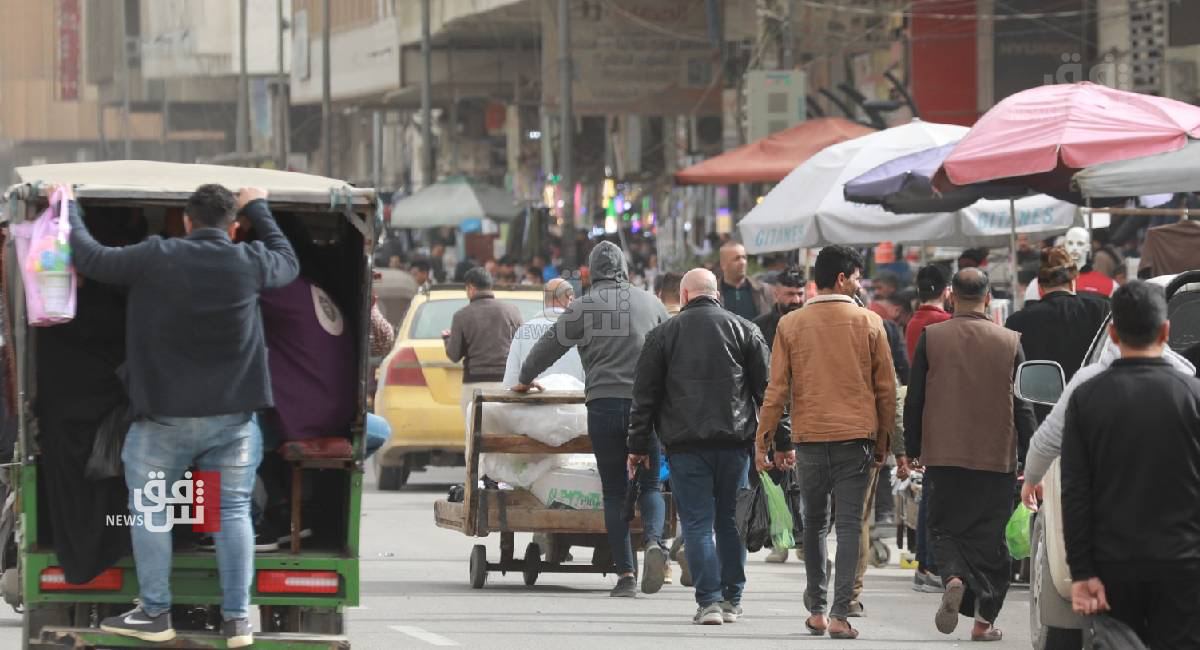Foundation warns of ‘parallel banking system’ and ‘shadow economy’ in Iraq
Foundation warns of ‘parallel banking system’ and ‘shadow economy’ in Iraq
2025-02-15 02:38
 Shafaq News/ The “Iraq Al-Mustaqbal” Foundation for Economic Studies and Consultations warned, on Saturday, of the danger of the parallel banking system, which constitutes about 84% of the “informal” economy in the country, considering this system to “limit the ability of official bodies to monitor the movement of funds.”
Shafaq News/ The “Iraq Al-Mustaqbal” Foundation for Economic Studies and Consultations warned, on Saturday, of the danger of the parallel banking system, which constitutes about 84% of the “informal” economy in the country, considering this system to “limit the ability of official bodies to monitor the movement of funds.”
The head of the institution, Manar Al-Obaidi, said in a statement published today, a copy of which was received by Shafaq News Agency, that “in the Iraqi economy, the parallel banking system stands out as one of the major challenges that directly affects the stability of the financial system.”
He explained that “this system consists of a group of financial institutions that operate outside the official framework and without supervision from regulatory authorities, but nevertheless play an influential role in the economic scene.”
Al-Obaidi also pointed out that “these institutions have emerged gradually over the past twenty years, starting from simple financial activities until they developed into entities that provide services similar to official banks, such as: lending, credit facilities, receiving deposits, and transferring money internally and externally,” adding that “among these institutions we find salary distribution outlets, exchange shops, consumer associations, and even some non-profit organizations.”
He added, “These institutions were able to achieve widespread popularity for several reasons. The first is the absence of effective oversight, which made work procedures easier compared to official banks, which attracted many customers looking for flexible and fast alternatives. The second and more important reason is the great demand from owners of small and medium enterprises.”
The head of the institution noted that “in Iraq, this type of project constitutes about 84% of the informal economy, and they are projects that are not officially registered, which deprives them of access to traditional banking services and pushes them to resort to these parallel financial institutions.
He pointed out that “the existence of an official banking system and a parallel one represents a great danger to the Iraqi economy, as it enhances the phenomenon of the shadow economy and limits the ability of official bodies to monitor the movement of funds,” considering that “this gap opens the door to many illegal practices such as tax evasion and money laundering.”
Al-Obaidi pointed out that “to deal with this situation, it is necessary to adopt firm solutions aimed at closing the gap between the two systems,” indicating that “this can be achieved by preventing unauthorized banking activities, and working to encourage small and medium enterprises to join the formal sector by providing attractive incentives.”
He continued by saying that “legal frameworks can be put in place to regulate the work of informal financial institutions and place them under the supervision of the central bank to ensure a minimum level of oversight. In the most serious cases, the optimal solution may be to completely close unlicensed institutions and link all banking operations to formal institutions.
Al-Obaidi continued, saying, “The Iraqi experience has shown that the shadow economy may exceed the size of the official economy, which poses a major challenge to the relevant authorities in most cases,” stressing that “previous attempts to control it have failed due to its ability to adapt to new circumstances and maneuver any regulatory measures.”
The head of the “Iraq Al-Mustaqbal” Foundation concluded that “for this reason, dealing with this challenge requires a balanced strategy that combines firmness in applying laws and flexibility in providing legal paths for these institutions to integrate into the formal economy, while ensuring the protection of the economy from potential risks.”
shafaq.com
